Results
-
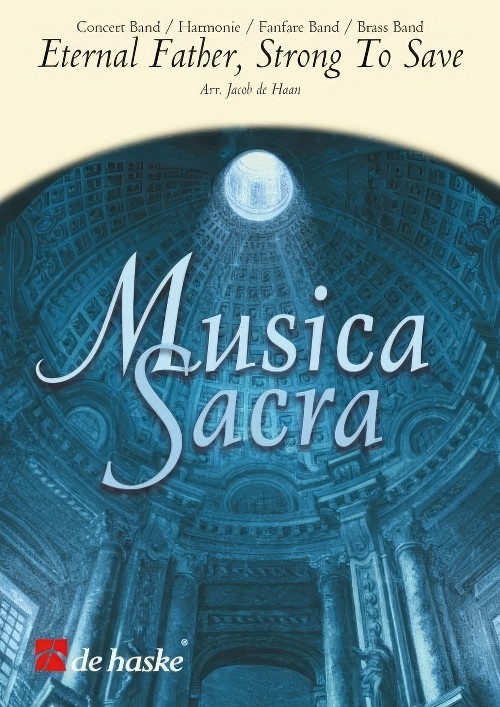 £59.99
£59.99Eternal Father, Strong to Save (Brass Band - Score and Parts) - Dykes, John Bacchus - De Haan, Jacob
Eternal father Strong to Save is a arrangement from the chorale of the same name. This work is ideal for use in church services, however it also makes a useful warm-up piece or a quiet interlude in any concert.Duration: 6:00
Estimated dispatch 7-14 working days
-
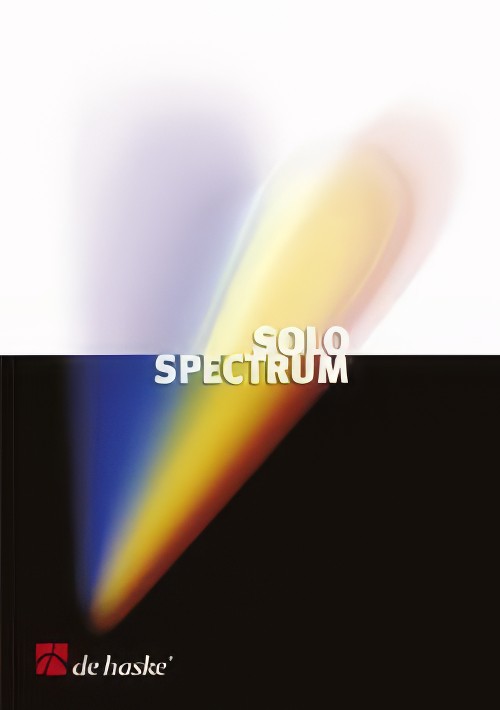 £59.99
£59.99She's Like the Swallow (Tenor Horn Solo with Brass Band - Score and Parts) - Curnow, James
This arrangement of the traditional melody features the tenor horn as a soloist. The haunting slow melody is ideally suited for the wonderful tone of this much under used solo instrument.Duration: 3:30
Estimated dispatch 7-14 working days
-
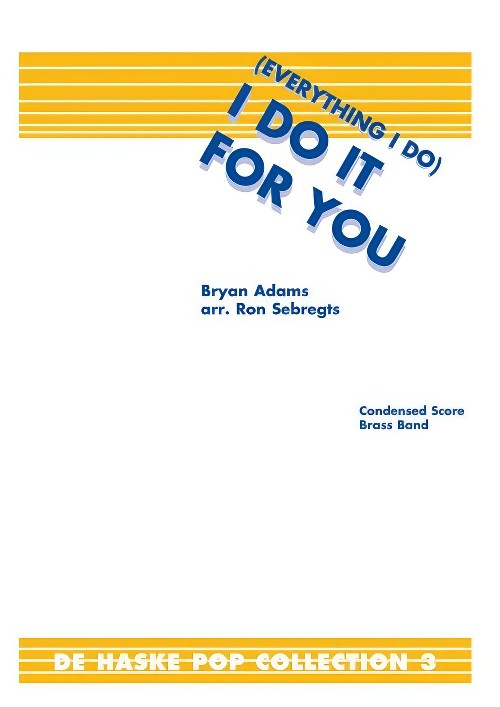 £54.99
£54.99(Everything I Do) I Do It for You (Brass Band - Score and Parts) - Adams, Bryan - Sebregts, Ron
This massive hit by Canadian singer/songwriter Bryan Adams has now become a classics rock ballad. This arrangement for brass band will bring great pleasure to both performers and audience.Duration: 4:00
Estimated dispatch 7-14 working days
-
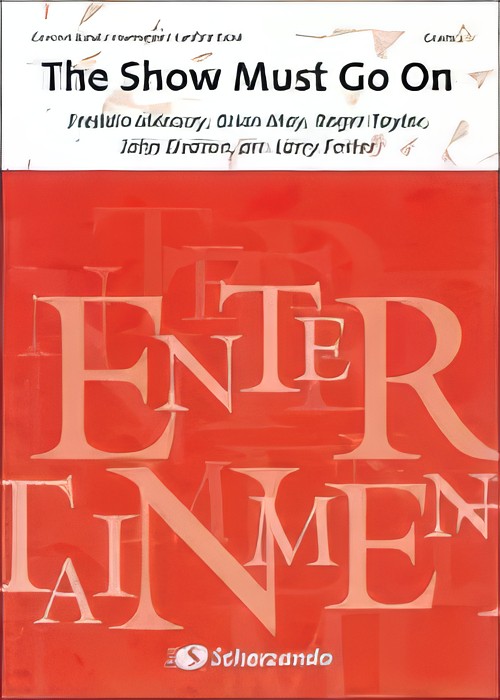 £54.99
£54.99The Show Must Go On (Brass Band - Score and Parts) - Foster, Larry
The Show Must Go On was one of the last hits for Freddie Mercury in 1991, the year of his death. In this context the title has a tragic significance. This arrangement will please both musicians and audiences and will throw off the sad associations of this song.Duration: 3:45
Estimated dispatch 7-14 working days
-
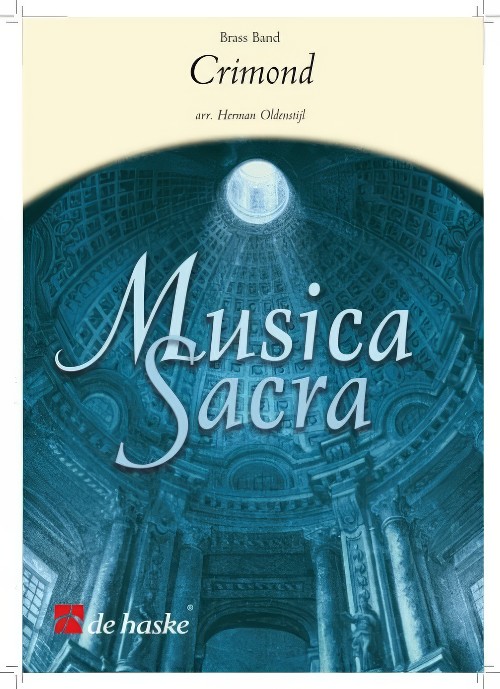 £59.99
£59.99Crimond (Brass Band - Score and Parts - Oldenstijl, Herman
This lovely Scottish hymn, also known as The Lord's My Shepherd, first appeared in 1929 in the Scottish songbook Northern Psalter, where it was incorrectly credited to David Grant, an Aberdeen businessman and amateur musician. It was, in fact, composed by Jessie Irvine the daughter of the parish minister at Crimond. This arrangement will be a musical jewel in your concert repertoire.Duration: 4:10
Estimated dispatch 7-14 working days
-
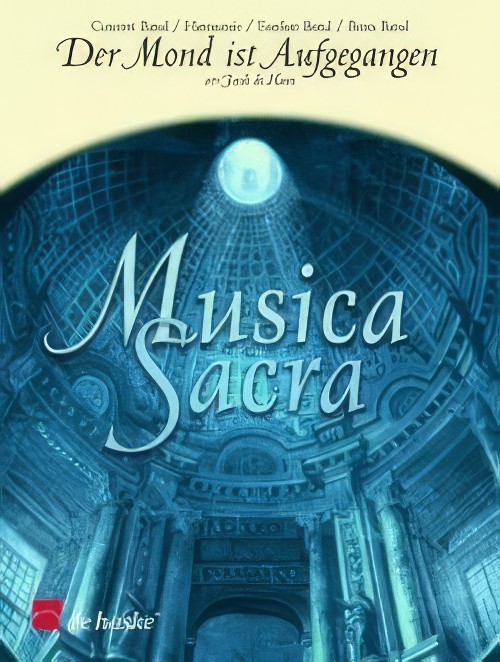 £59.99
£59.99Der Mond ist Aufgegangen (Brass Band with Optional Choir - Score and Parts) - De Haan, Jacob
The lyrics to Der Mond ist aufgegangen (The Moon Is Risen) come from Matthias Claudius, one of Germany's best-known poets. The 1779 poem with the original title Abendlied (Evening song) was set to music by Johann Abraham Peter Schulz and has become perhaps the most famous Abendlied in the German-speaking world. Johann de Haan has created a delightful arrangement of this poignant melody. The wind orchestra can optionally be accompanied by a choir (Dutch and German texts are provided).Duration: 3:30
Estimated dispatch 7-14 working days
-
 £59.99
£59.99Toccata (Brass Band - Score and Parts) - Frescobaldi, Girolamo - Curnow, James
Girolamo Frescobaldi (1583-1643) was an Italian organist and composer, who became one of the most distinguished organists of the 17th century, serving in the cathedrals of Rome, Florence and in the Netherlands. This Toccata is an arrangement from one of his 68 organ works.Duration: 6:00
Estimated dispatch 7-14 working days
-
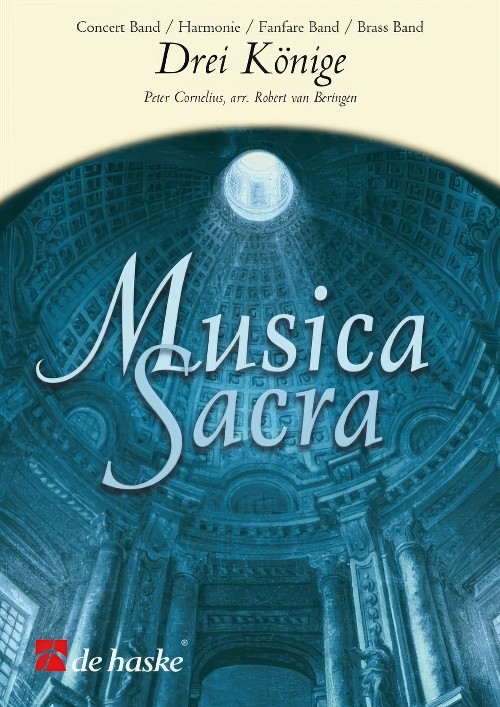 £54.99
£54.99Drei Konige (Three Kings) (Brass Band - Score and Parts) - Cornelius, Peter - Beringen, Robert van
With his arrangement of Drei Knige, originally composed for voices, Robert van Beringen makes a welcome contribution to the Christmas repertoire for bands. In this work by the German composer Peter Cornelius (1824 - 1874) the medieval choral Wie schn leuchtet der Morgenstern comes to the fore as a counter melody.Duration: 2:10
Estimated dispatch 7-14 working days
-
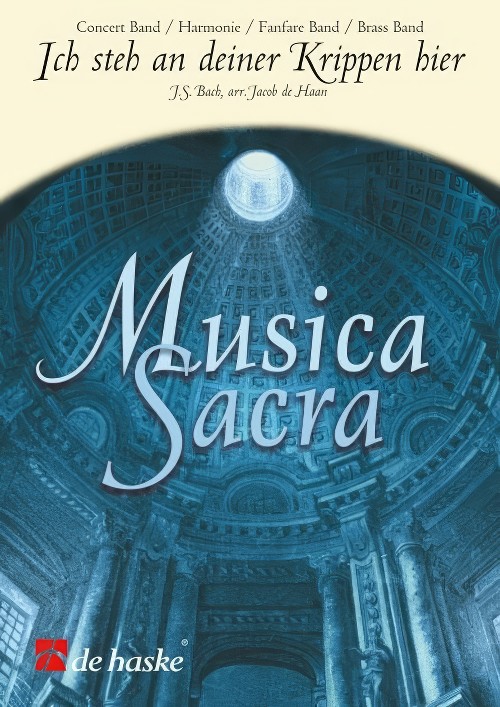 £59.99
£59.99Ich Steh an Deiner Krippen Hier (Brass Band - Score and Parts) - Bach, Johann Sebastian - De Haan, Jacob
Many of the numerous chorals Johann Sebastian Bach (1685-1750) composed during his lifetime are still very popular today. An example is the melody Ich steh an deiner Krippen her (BWM 469) composed in 1736 and first published in the Schemelli hymn-book. In Jacob de Haan's magnificent instrumental arrangement for band this piece will certainly enrich your Christmas concert programme.Duration: 3:30
Estimated dispatch 7-14 working days
-
 £82.95
£82.95The Flowers of the Forest (Brass Band - Score and Parts) - Bennett, Richard Rodney - Hindmarsh, Paul
In a preface to the score, the composer explains that 'the folk song The Flowers of the Forest is believed to date from 1513, the time if the battle of Flodden, in the course of which the archers of the Forest (a part of Scotland) were killed almost to a man'. Bennett had already used the same tune in his Six Scottish Folksongs (1972) for soprano, tenor and piano, and it is the arrangement he made then that forms the starting-point for the brass-band piece. A slow introduction (Poco Adagio) presents the folk song theme three times in succession - on solo cornet, on solo cornets and tenor horns, and on muted ripieno cornets in close harmony - after which the work unfolds through five sections and a coda. Although played without a break, each of these five sections has its own identity, developing elements of the tune somewhat in the manner of variations, but with each arising from and evolving into the next. The first of these sections (Con moto, tranquillo) is marked by an abrupt shift of tonality, and makes much of the slow rises and falls characteristic of the tune itself. The tempo gradually increases, to arrive at a scherzando section (Vivo) which includes the first appearance of the theme in its inverted form. A waltz-like trio is followed by a brief return of the scherzando, leading directly to a second, more extended, scherzo (con brio) based on a lilting figure no longer directly related to the theme. As this fades, a single side drum introduces an element of more overtly martial tension (Alla Marcia) and Bennett says that, from this point on, he was thinking of Debussy's tribute to the memory of an unknown soldier (in the second movement of En Blanc et noir, for two pianos). Bennett's march gradually gathers momentum, eventually culminating in a short-lived elegiac climax (Maestoso) before the music returns full-circle to the subdued melancholy of the opening. The work ends with a haunting pianissimo statement of the original tune.
Estimated dispatch 7-14 working days
